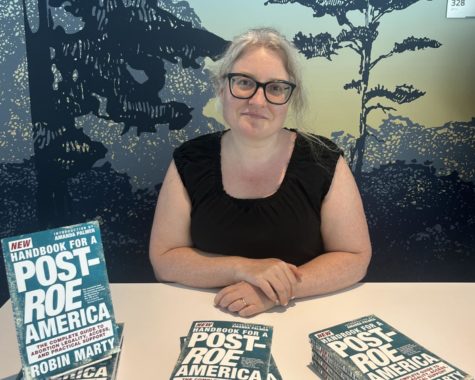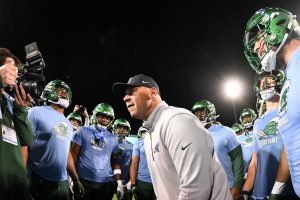Author speaks on post-Roe South
October 5, 2022

Author and activist Robin Marty spoke at Tulane University last Friday to educate students and staff about the realities of the post Roe v. Wade era in the American South.
Marty is the author of the recent book “A New Handbook for a Post-Roe America.” She serves as director of operations at West Alabama Women’s Center in Tuscaloosa, Alabama.
She wrote her latest book to stand the test of time.
“Every time you put out a book, by the time you put it out, it’s too late it feels like. That’s why ‘Handbook’ was written the way it was,” Marty said. “Everyone was like, ‘how do you have this book that’s here that is exactly for the right time?’ and I was like, ‘I guessed.’”
The book, which she discussed with students last week, is a guide to abortion legality, access and practical support. She said she wrote the book based on her predictions about how the world would look after Roe v. Wade.
She cited bounty hunter laws in Oklahoma and Texas that reward citizens for reporting illegal abortions as a concern, arguing it overrules the federal court system.
“There are so many more concerns and liabilities and places where people can get legally harmed than I ever could’ve expected,” Marty said.
Marty moved to Alabama in February 2021 to run communications for the West Alabama Women’s Health Center. On June 24, 2022, Alabama implemented a total abortion ban.
“Since that moment, we have not provided any more abortions,” Marty said. “We have reopened our clinic with a variety of other sexual health care and health care. We are now offering birth control, a lot of prenatal care, HIV testing, treatment, STI tests and treatments.”
She also said the Alabama clinic is struggling to stay open due to a lack of funding.
“We don’t know how long we will be allowed to exist as a clinic,” she said. “So until then, we do as much care as possible for as many people as possible.”
Marty also emphasized the ruling’s impact on minority and poor communities.
“Our job is to basically do harm reduction,” Marty said. “Our community — which is mostly poor, mostly Black, and are not going to have healthy lives to start from — is the one that is bearing the brunt of what is happening. And so it is up to us to make sure that it does not happen, and it does not harm them any further than the state already has.”









Leave a Comment